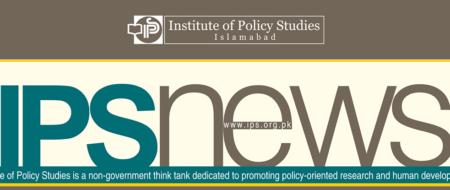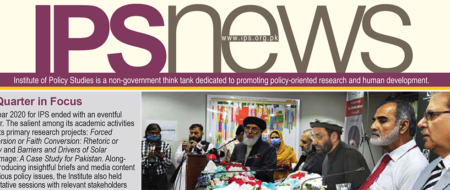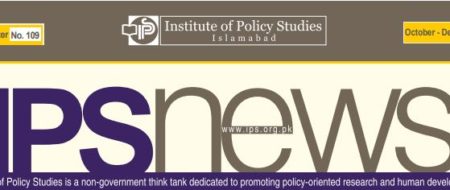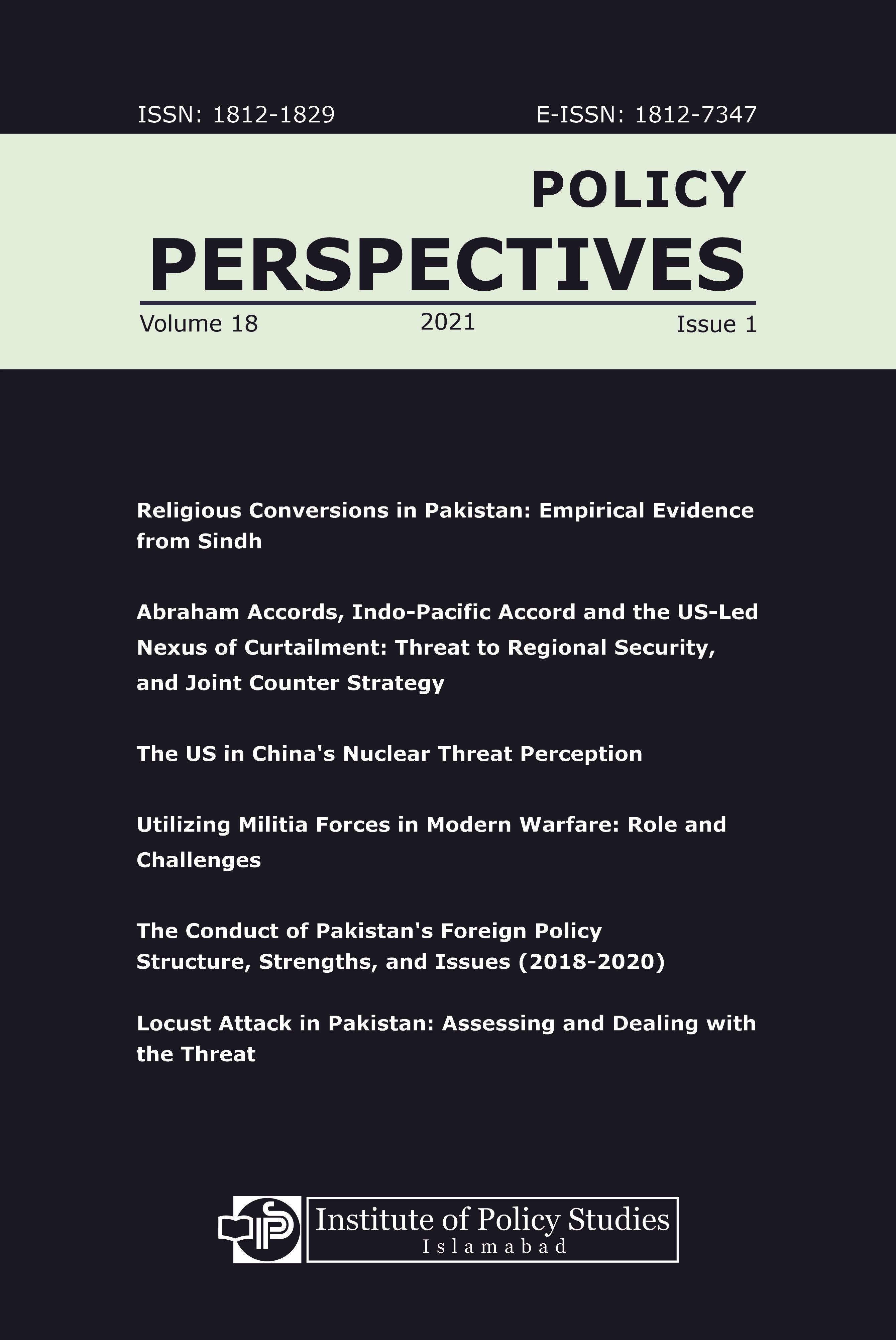Nuclear South Asia and Strategic Stability – the special edition of Policy Perspectives (Vol. 13, No.1)
The special edition of Policy Perspectives – a peer-reviewed flagship journal of Institute of Policy Studies (IPS), Islamabad; covering assorted topics concerning nuclear South Asia and the strategic stability – has been published now and is widely available for the readers.
| Editor: | Khalid Rahman |
| Volume: | 13 |
| Number: | 1 |
| Pages: | 170 |
| Retail Price (Pak): | PKR600 |
| Annual Subscription: | PKR1000 |
| Export Price: | $60 (per copy) |
| Annual International Subscription: | $120 |
The special edition of Policy Perspectives – a peer-reviewed flagship journal of Institute of Policy Studies (IPS), Islamabad; covering assorted topics concerning nuclear South Asia and the strategic stability – has been published now and is widely available for the readers.
The special issue keeps up with the journal’s tradition of presenting diverse perspectives on evolving regional and global scenarios.
The first article ‘Strategic Ambiguities in Indian Nuclear Doctrine: Implications for Pakistan’s Security’, which is penned by Umar Hayat Luk from Institute of Peace and Conflict Studies (NIPCONS), National University of Science and Technology (NUST), Islamabad, critically examines the broad contours of India’s nuclear doctrine and traces the consequences on the security calculus of Pakistan.
The second article ‘Pakistan’s Nuclear Program: The Context’ is authored by Air Cdre (r) Khalid Iqbal, former senior officer of Pakistan Air Force and member IPS-National Academic Council, who views Pakistan’s nuclear weapon program in the context of the threat it faces.
The next piece ‘Deterrence in Indo-Pak Context: A Critical Appraisal’ by Ahmad Khan, Department of Strategic Studies, National Defense University (NDU), Islamabad, and Ali Ahsan, post graduate student, International Relations Department, NDU, Islamabad, stresses India and Pakistan to maintain rational decision-making to ensure the credibility of their deterrence and to achieve the objective of maintaining stability.
‘The Changing Contours of Minimum Deterrence in South Asia’ is contributed by Dr Zafar Khan, assistant professor, Department of Strategic Studies, NDU, Islamabad, who stresses that the unjust attitudes of international community favoring one side against the other, the absence of criteria based approach, and the strategic pressure on Pakistan pulling it into arms competition undermines the dynamics of minimum deterrence and strategic stability in South Asia.
The Implications of Indian Ballistic Missile Defence (BMD) and the Cruise Missiles in South Asia on the region’s strategic stability are discussed in next two articles by Ibrahim Anjum, Ph.D. scholar, NDU, Islamabad, and Kulsoom Belal, assistant research coordinator, IPS, Islamabad.
The article by Asim Ahmed, Ph.D. scholar, NDU, Islamabad, evaluates Tactical Nuclear Weapons (TNWs) on a conceptual platform, examining the role of India’s Cold Start Doctrine/Proactive Military Strategy and Pakistan’s embryonic concept of TNWs in deterrence stability and instability in South Asia, in order to draw pertinent lessons for Pakistan to ensure deterrence stability in the region.
The final piece by Muhammad Umar, assistant professor, School of Sciences and Humanities, NUST, Islamabad, titled ‘Nasr: A Product of Pakistan’s Strategic Culture’ argues that the Cold Start Doctrine is in fact real and can be materialized, and for that reason Pakistan has had to respond to the threat it poses. The piece attempts to understand Pakistan’s response to the Cold Start Doctrine by trying to grasp its strategic culture.
It is also pertinent to mention that IPS’ bi-annual journal Policy Perspectives disseminates the research carried out by the Institute and its associates. Alongside its printed copies, the journal is also available online to the global audience through Pluto Journals on JSTOR (www.jstor.org) and on Factiva and affiliated international databases through Asianet-Pakistan.
Contents |
||
| Editorial |  |
|
| Strategic Ambiguities in Indian Nuclear Doctrine Implications for Pakistan’s Security
Umar Hayat Luk |
||
| Pakistan’s Nuclear Program: The Context
Khalid Iqbal |
||
| Deterrence in Indo-Pak Context: A Critical Appraisal
Ahmad Khan and Ali Ahsan |
||
| The Changing Contours of Minimum Deterrence in South Asia
Zafar Khan |
||
| Implications of Indian Ballistic Missile Defence (BMD) on Strategic Stability
Ibrahim Anjum |
||
| Cruise Missiles in South Asia: Implications for Regional Strategic Stability:
Kulsoom Belal |
||
| Tactical Nuclear Weapons (TNWs) or Flexible Response Choosing the Right Strategy
Asim Ahmed |
||
| Nasr: A Product of Pakistan’s Strategic Culture
Muhammad Umar |
||









